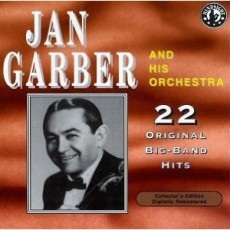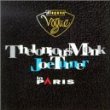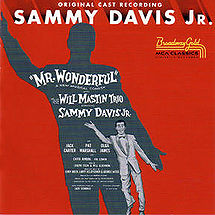
Daily Dose Of Jazz…
Jan Garber was born Jacob Charles Garber on November 5, 1894 in Indianapolis, Indiana. He had his own band by the time he was 21. He became known as “The Idol of the Airwaves” in his heyday of the 1920s and 1930s, playing jazz in the vein of contemporaries such as Paul Whiteman and Guy Lombardo.
It was during World War II that Garber began playing swing jazz with arranger Gray Rains and vocalist Liz Tilton. However, the recording restrictions in America during the war eventually made his ensemble unfeasible, and he returned to “sweet” music after the war, playing violin with the Philadelphia Symphony Orchestra.
Jan formed the Garber-Davis Orchestra with pianist Milton Davis from 1921–1924. After parting with Davis, he formed his own orchestra, playing both “sweet” and “hot” 1920s dance music. He was hit hard by the Great depression and in the thirties he refashioned his ensemble into a big band and recorded a string of successful records for Victor.
Violinist and bandleader Jan Garber continued to lead ensembles nearly up until the time of his death on October 5, 1977 in Shreveport, Louisiana.
More Posts: bandleader,violin

Daily Dose Of Jazz…
Hailing from the West Coast, California native, trumpeter Jeremy Pelt was born on November 4, 1976. His primary interest was strictly classical music until he started high school when he began playing in the jazz band. After matriculating Berklee College of Music he set his sights on New York and before long got noticed by many top jazz musicians and got his first professional gig playing with the Mingus Big Band, allowing him to grow and nurture long lasting associations.
Pelt has had the good fortune to play with such jazz luminaries, such as Jimmy Heath, Frank Wess, Charlie Persip, Keter Betts, Frank Foster, John Hicks, Ravi Coltrane, Winard Harper, Vincent Herring, Ralph Peterson, Lonnie Plaxico, Nancy Wilson, Bobby Short, Cedar Walton and many too numerous to list. Coupled with those collaborations he has been a featured trumpeter in the Roy Hargrove Big Band, The Village Vanguard Orchestra and the Duke Ellington Big Band. Currently, he is member of the Lewis Nash Septet, the Frank Foster Loud Minority, and The Cannonball Adderley Legacy Band featuring Louis Hayes.
Jeremy maintains a consistent forward momentum while transmitting a modern-day sense of urgency with his songs. Pelt’s major focus is on writing music for each of his three bands: “Creation”– a sextet, “Noise” – a semi-electric band and “The Jeremy Pelt Quartet”.
He has been voted “Rising Star on the Trumpet” by Downbeat Magazine and the Jazz Journalist Association two years in a row. Jeremy Pelt has toured throughout the United States, Europe, Japan, Virgin Islands and Brazil, and continues to perform and record.
More Posts: trumpet

The Jazz Voyager
Jaydo’s Jazz Café: 6, Rue Pradier, Geneva, Switzerland / +41 (0)22 738 97 42 / Ernie Odoom has spent a number of years “dreaming” of a new venue in Geneva where musicians could hone their skills to perfection – every day of the week – leading to the creation of world class artistic projects. His dream would benefit music lovers and put Geneva on the map as a happening place for creative music.
Well, at last it’s here! Come and check out “The Early Sessions” where top quality live music takes place every day in the heart of the city, especially for the early bird. Food and drink available.Tuesdays through Saturdays – 5pm till 10pm.

Daily Dose Of Jazz…
Joe Turner was born Joseph H. Turner on November 3, 1907 in Baltimore, Maryland. He was a stride and jazz pianist, not to be confused with blues singer Big Joe Turner. He started to learn the piano from his mother at age five and began to make a name for himself in Harlem as a teenager shortly after his move to New York in 1925.
Joe got his first big break in 1928 when Benny Carter hired him as part of his orchestra. He followed this with playing in Louis Armstrong’s group. He was an accompanist to Adelaide Hall with whom he toured Europe in 1931 where he remained through 1939 when war broke out.
Tuner returned to the States and worked as a singer, played with Sy Oliver’s band, then Rex Stewart until after the war. He went back to Europe passing through Hungary and Switzerland before settling in Paris and occasionally returning to the U.S. to perform.
He was the last major stride pianists to survive the era following in the footsteps of James P. Johnson and Fats Waller. He had a superb technique and fine sense of swing, recording a handful of albums. Joe Turner passed away of a heart attack on July 21, 1990 in Paris, France at age 82.
More Posts: piano

From Broadway To 52nd Street
Mr. Wonderful opened at the Broadway Theatre on March 22, 1956 and ran for 383 performances. Jerry Bock, Larry Holofcener and George David Weiss composed the music and lyrics for the musical from which emerged Too Close For Comfort to become a jazz standard.
The Story: Written specifically to showcase the talents of Sammy Davis Jr. the thin plot, focusing on entertainer Charlie Welch’s show business struggles, primarily served as a springboard for an extended version of Davis’s Las Vegas nightclub act. The cast was comprised of Sammy Davis Sr., Will Mastin, Jack Carter, Chita Rivera, Malcolm Lee Beggs and Marilyn Cooper.
Jazz History: The 1930s belonged to popular swing big bands, in which some virtuoso soloists became as famous as the bandleaders. Key figures in developing the “big” jazz band included bandleaders and arrangers Count Basie, Cab Calloway, Jimmy and Tommy Dorsey, Duke Ellington, Benny Goodman, Fletcher Henderson, Earl Hines, Glenn Miller and Artie Shaw.
Swing was also dance music. It was broadcast on the radio ‘live’ nightly across America for many years especially by Hines and his Grand Terrace Cafe Orchestra broadcasting coast-to-coast from Chicago, well placed for ‘live’ time-zones. Although it was a collective sound, swing also offered individual musicians a chance to ‘solo’ and improvise melodic, thematic solos, which could at times be very complex and important music.
Over time, social strictures regarding racial segregation began to relax in America: white bandleaders began to recruit black musicians and black arrangers.
Sponsored By
www.whatissuitetabu.com



